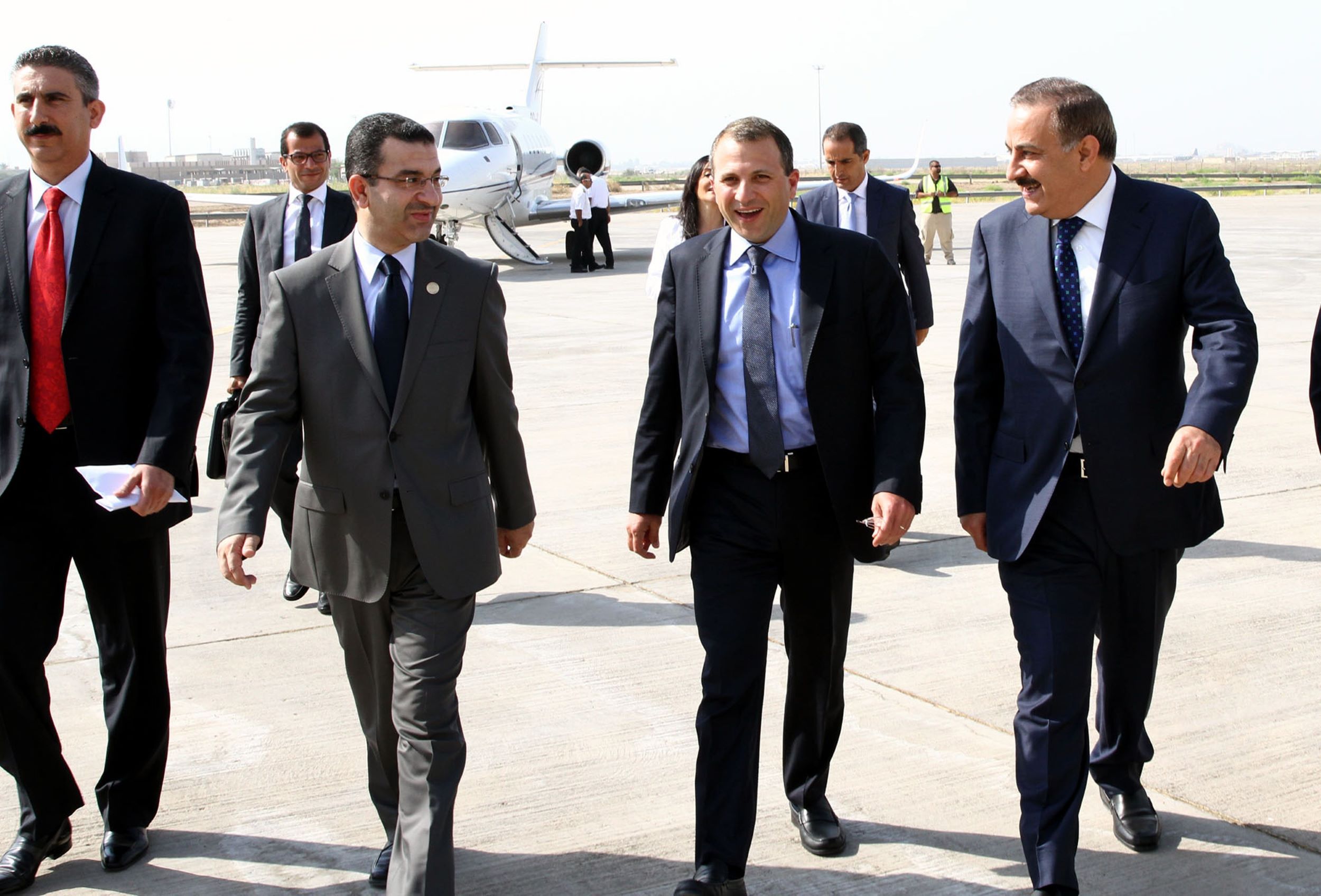Currently, deplatforming of people with views considered hateful is applied in a haphazard way. This just adds to the problem of hate speech
When a sexual harassment scandal hit the headlines in Jordan featuring a male teacher at the Jordan University of Science & Technology (JUST), many of the media organisations reporting the case chose to give a platform to the teacher rather than the women who had accused him.
This case raises important questions about when we, as journalists, should choose not to platform people with controversial views that might violate human rights or ethics.
Article 19 of the Universal Declaration of Human Rights guarantees freedom of opinion and expression for everyone, and this right includes the freedom of the individual to “hold opinions, seek and receive news and ideas, and to spread them to others”. With the rise of free (in all meanings of free) social media platforms, therefore, people have become able to express their thoughts freely and widely.
But when it comes to newsy opinions and statements, journalists find themselves with a difficult choice: They either need to include opinions deemed hateful or harmful, or exclude them for ethical reasons. The choice to exclude people with specific statements and opinions that violate human rights or ethics is widely referred to as “deplatforming”.
What is deplatforming?
The Oxford Dictionary is one of the few to include “deplatform” as a word, meaning to “prevent (a person holding views regarded as unacceptable or offensive) from contributing to a forum or debate, especially by blocking them on a particular website”.
This term is mostly used in a journalistic context, however it occurs in an academic one too and has done for some time. For example, it occurred at the London School of Economics (LSE) in 1973 when the British National Union of Students objected to a lecture by the British-German psychologist Hans Eysenck. The lecture wasn’t cancelled but the protest against it inspired another incident in the same month; a lecture by the American academic Samuel P Huntington, who had previously advised the US government on Vietnam, was cancelled when the students occupied the lecture theatre.
Many media outlets and social media companies now use deplatforming for the same reason - usually with good intentions. But this policy can be misused by media outlets and journalists to deliberately deny some people or organisations the right of speech.
When is it right to deplatform someone?
The ongoing - and valid - discussion regarding the thin line between deplatforming as an ethical policy or a violation of freedom of expression, is no different to the discussion around whether it is even possible to have a completely impartial journalism.
While many believe that the media cannot be completely neutral, due to the different political backgrounds that media institutions may exist within, others believe that ethical and professional standards are capable of creating a neutral and balanced media.
Despite the different points of view in this regard, there remain clear lines for journalistic ethics that guarantee the public the right to know without being manipulated or misled. Some of these lines make it totally unethical for a journalist or a media outlet to host someone or a group with statements that violate human rights or ethical standards. For example, if we know that someone has previously expressed racist ideas towards someone or some ethnic groups, a journalist might have to consider deplatforming him/her as his/her ideas could harm the vulnerable audience or cause them to be harmed.
Furthermore, granting a platform to people who spread hate speech is one way to enable these ideas to spread to a wider range of people, when they should not.
Who gets to decide what is ‘hate speech’?
But this raises the thorny question of who gets to determine what is hate speech in the first place.
For example, the British feminist journalist and activist Julie Bindel was barred from entering a library last week to speak about male violence against women and girls because of her belief in the retention of female-only spaces (such as prisons and domestic violence shelters) which exclude transwomen, for example. Some believe that is “hate speech” but in fact her “gender critical” belief that human beings cannot change sex are protected by law in England and Wales.
Furthermore, shouldn’t everyone have the right to express his or her thoughts freely as guaranteed in the Universal Declaration of Human Rights? Yes, everyone can express thoughts “without annoying” others. But receiving a platform on which to air your views is not a right for every person or institution, it’s a privilege. Also, not giving media space to a particular person or institution does not necessarily mean silencing them.
In a world where cyberspace has become available to everyone, people can express their thoughts on any social media platform they choose, such as their account on Facebook, Twitter, and other social networking.
Deleting Palestinian Facebook pages
But even these platforms impose their own policies for publishing; they can simply remove any content that violates their ethical and legal policies. In June 2021, for example, Facebook removed the page of the Palestinian Quds Press Agency, and in the following month it also removed the page of the Palestinian Shehab News Agency, which had more than 7 million followers at the time.
Facebook justified the decision by arguing that the two agencies were violating its standards for using the site by “supporting violence”. In 2018, the Israeli Ministry of Justice announced that Facebook had agreed to shut down pages containing pro-Palestinian content on its site. If Facebook's criteria were clear, we would have heard, for example, about Facebook also deleting extremist Israeli pages inciting violence against Palestinians. Why were pages showing Ukrainians how to make Molotov Cocktail bombs to resist Russian invaders not deleted?
Choosing not to cover news about the activities of holders of opinions deemed hateful by wider society at all might fall under a media blackout. For example, neo-Nazis can be deplatformed in order not to spread more of their racist views, but news about their activities can be addressed in general without the need for holding interviews with them.
Another example is that while media outlets must report terrorist attacks by ISIS, the terrorist fighters themselves should never be given the chance to talk or justify their terrorism, because this can lead to more radicalisation among audiences.
Deplatforming doesn't apply only to political coverage. In the Arab world, there are many talk shows that discuss taboos in the Middle East, which is a great thing to have. But for instance, if a talk show is discussing violence against women, should we also give a platform to men who commit these crimes to justify them? That is effectively what happened at the Jordan University of Science & Technology.
What if hate speech comes from officially elected figures ?
In January 2021, Twitter banned former US President Donald Trump from posting after he lost the presidential election. Facebook also followed Twitter's step, blocking Trump's Facebook and Instagram accounts temporarily for two weeks because "allowing the president to continue using [our services] during this period is very risky”.
In June 2019, the former Lebanese Minister of Foreign Affairs, Gebran Bassil, published 43 tweets in which he spoke against refugees in Lebanon, especially Syrians. His words were criticised as being racist. Although Bassil represented the Lebanese government at the time, giving him media space could have meant stirring up racism and sectarianism in Lebanon. But Bassil was never deplatformed, and he kept posting such content, and showing up on TV screens.
Conversely, in 2021, Facebook removed the page of the Lebanese armed group, Hezbollah, and the page of its Al-Manar TV channel. But this decision had political background, as the US government had already banned all institutions operating on its lands from dealing with organisations that had been designated by the US State Department as terrorist organisations.
In 2019, Twitter temporarily banned the account of the Supreme Leader of the Iranian Republic, Ali Khomeini, after he published a tweet in which he wished harm to the British writer Salman Rushdi.
Deplatforming as a media blackout tool
Every journalist knows that delivering news impartially and professionally requires ethics, in order to prevent one's personal ideas and opinions from affecting coverage.
The same thing applies to deplatforming; journalists should not choose to deplatfrom an opinion or a statement just because they personally do not agree with it. Accordingly, media outlets need to set their own clear standards for deplatforming, so that these standards are clear, ethical and legal.
Earlier last month, The German state-run Goethe Institute disinvited Palestinian activist Muhammad Al-Kurd from speaking at one of its conferences in Hamburg, Germany because, it said, Al-Kurd “had made several comments about Israel in a way the Goethe-Institut does not find acceptable”.
Earlier in November 2021, Al-Kurd have given a speech to the UN General Assembly, in which he stated that the Israeli state had been established over Palestinian land after ethnically cleansing its Palestinian original inhabitants. Is this hate speech? And who gets to determine that?
Deplatforming is a hugely grey area. We need to set clear standards for mass media and social networks with audience-generated content.
Abeer Ayyoub is a freelance journalist based in Istanbul
The views expressed in this article are the author’s own and do not necessarily reflect Al Jazeera Journalism Review’s editorial stance





































